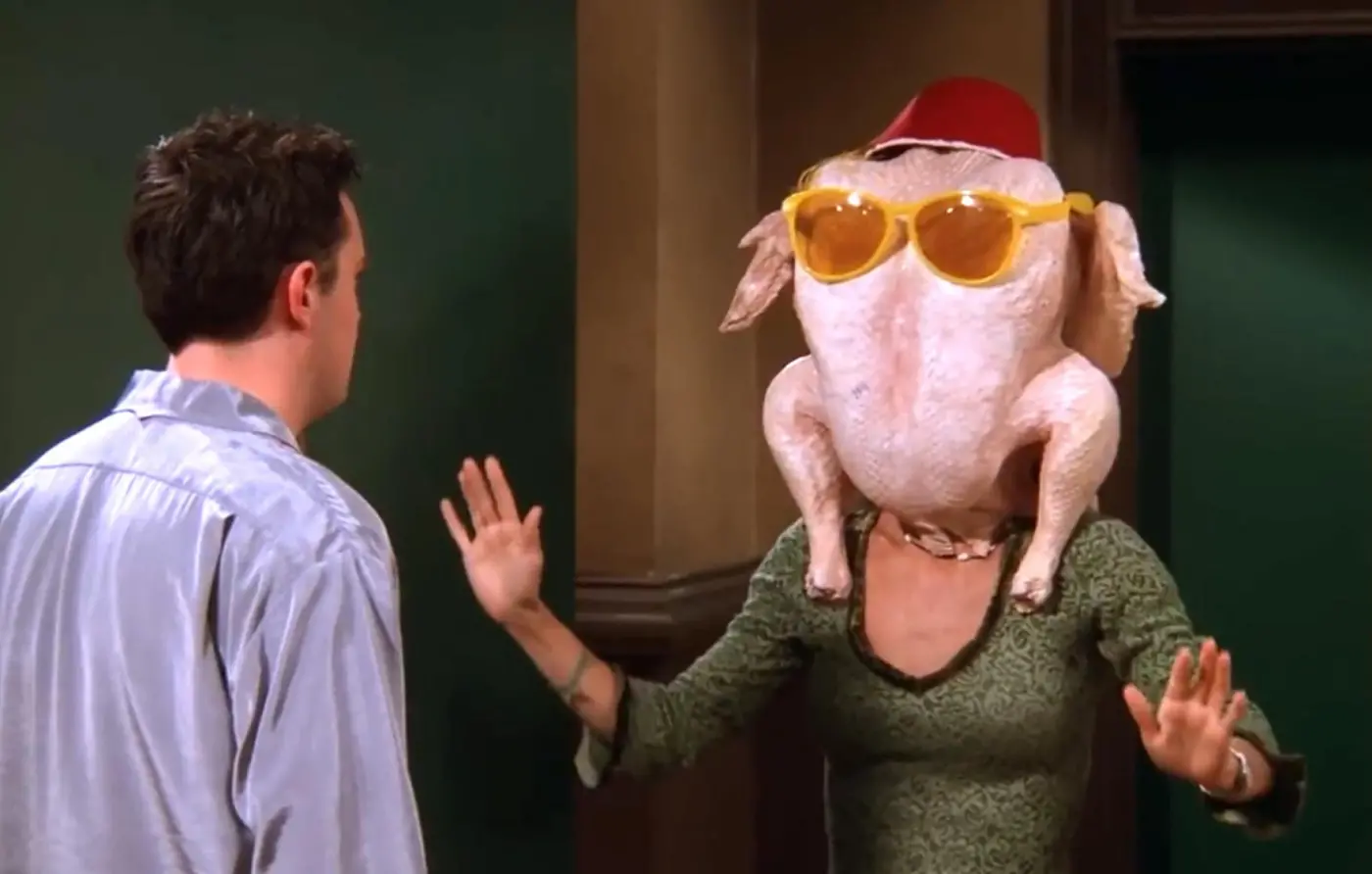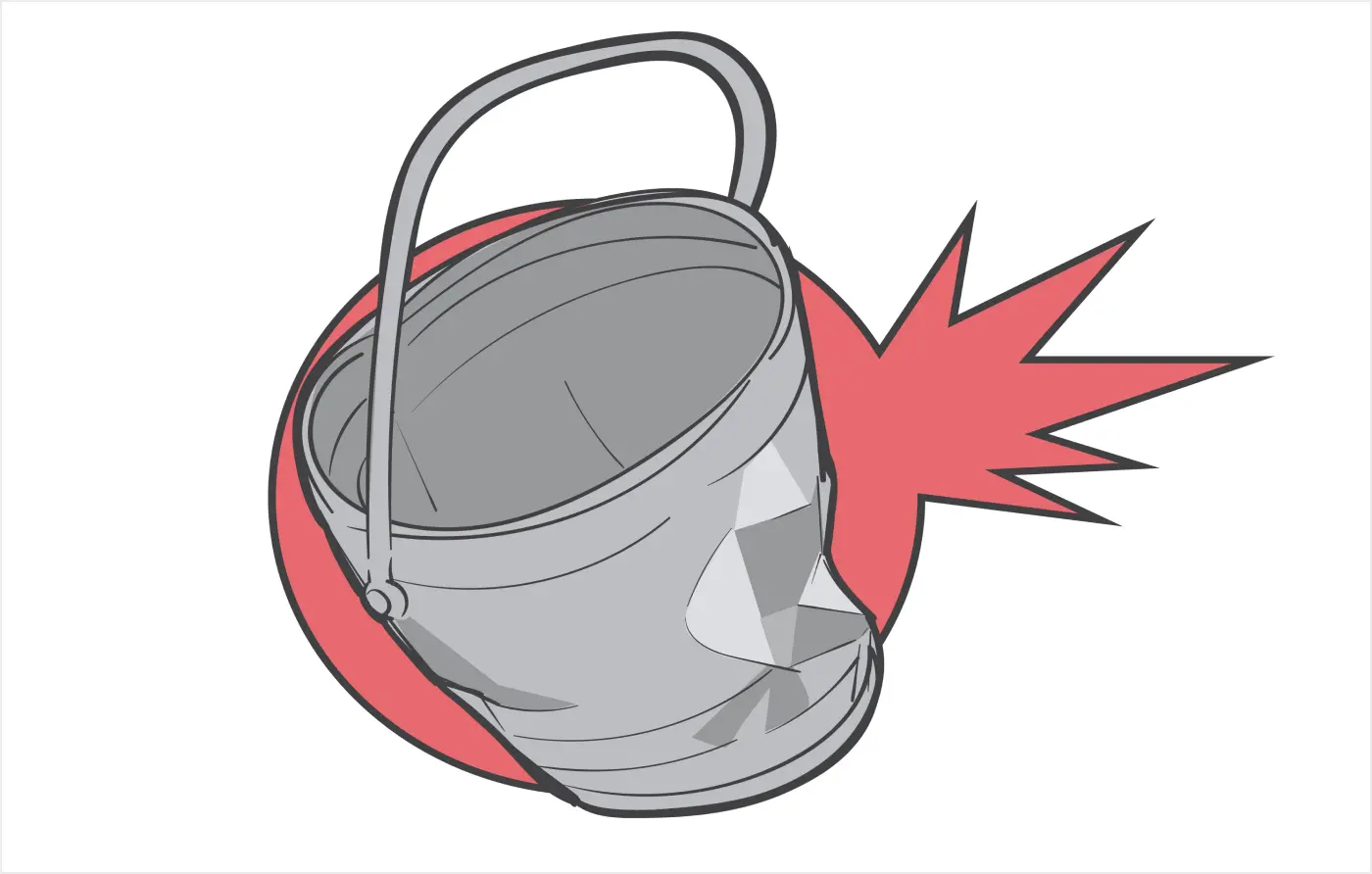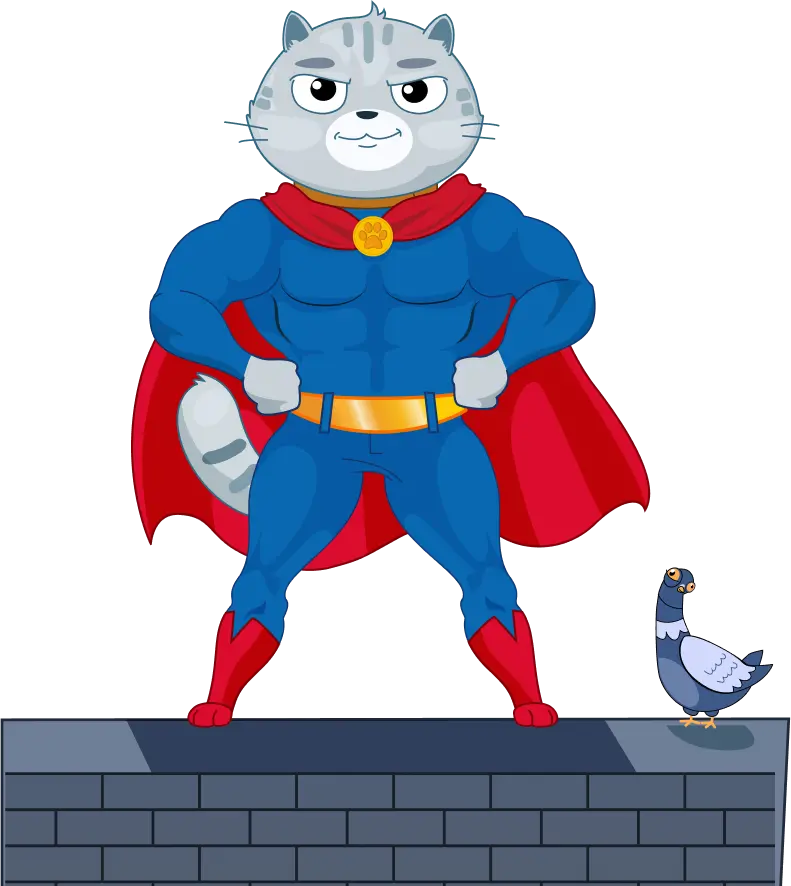35 Funny Idioms to Improve Your English Speaking Skills

There are a lot of funny idioms that native English speakers use in their daily conversations. However, the problem many ESL students face when the subject of idioms comes up is that they simply don’t understand their meaning. By definition, idioms are not supposed to mean what the words within them initially mean.
Learning funny idioms in English can help shed light on how they represent a symbolic form of speech aimed at conveying the message rather than necessarily being straightforward. In this article, we compiled a list of the most common English idioms. We also provided examples of how to use them in sentences to make your learning experience more comprehensive.
List of funny idioms for English learners
Here is the list of funny idioms that we’re going to be discussing today:
Let’s begin looking at funny idioms in English one by one!
#1 Hold your horses

No need to hit the gym and practice doing pushups. To hold your horses means to slow down for a moment and wait. Interestingly, this idiom is believed to originate in Ancient Greece, referring to horseback riding, and used to mean keeping your horses still.
Example:
- Hold your horses, John. We are still playing the game.
- Please, hold your horses while driving on a highway. We don’t want to cause an accident.
#2 The elephant in the room

Saying the elephant in the room refers to an obvious issue or difficult situation that no one wants to discuss. Such funny English idioms can carry a more serious tone since it’s based on the notion that something as conspicuous as an elephant can be intentionally overlooked to avoid unpleasant situations.
Example:
- We knew our daughter started a fight at school, but we didn’t want to talk about it, so there was the elephant in the room the entire evening.
- So, we’re going to pretend that the elephant isn’t in the room?
#3 Put a sock in it

Telling someone to put a sock in it is an impolite way to tell someone to stop talking or be quiet.
Example:
- I wish someone would tell Jim to put a sock in it. He’s distracting everyone from work.
- If he doesn’t stop yelling, I will have to put a sock in it!
#4 Sacred cow

A sacred cow is a belief or a notion that people assuredly support and do not want or dare to criticize. With that being said, sacred cows may not be held universally and can refer only to specific communities. This one is among the funny idioms in English, which is believed to originate from the Hindu belief that cattle are sacred.
Example:
- The principle of democracy is a sacred cow in this country.
- Sometimes, changes are necessary to improve things, as nothing is truly a sacred cow.
#5 Running around like a headless chicken

Running around like a headless chicken means panicking and doing things without clear direction or much thinking — usually, such a mental state results in a futile effort.
Example:
- The deadline was close, so he ran around like a headless chicken. Though it didn’t help him complete his task on time.
- He ran around like a headless chicken at the airport once he realized he might be late for his flight.
#6 Go down a rabbit hole

Going down the rabbit hole is a metaphorical idiom that means to be transported into a bizarre yet intriguing situation or a state of mind. You can use this phrase to describe investing in a very interesting or a time-consuming topic.
What’s curious about such seemingly funny idioms is that “going down a rabbit hole” originated from the book Alice’s Adventures in Wonderland, where Alice literally falls into a White Rabbit hole that takes them to a wonderland.
Example:
- Yesterday, I went down a rabbit hole of conspiracy theories on the internet. I stayed up until morning.
- Whenever someone brings up the movie Inception, I go down a rabbit hole of fan theories.
#7 The tail wagging the dog

The tail wagging the dog refers to situations where a less influential or important group controls a larger and more powerful group. This phrase originally came from an 1858 play called Our American Cousin.
Example:
- If the parents can’t control a child, it becomes a matter of the tail wagging a dog.
- Because one person in a friend group has a cat allergy, we can’t hang out with our animals. It’s like the tail wagging the dog!
#8 When pigs fly

When pigs fly takes a rightful place among funny English idioms. You can use it to say that something will never happen. After all, it is implausible to witness pigs fly.
Example:
- They will renovate this historic building when pigs fly.
- If there is a chance you and Mary will start dating, it will happen when pigs fly.
#9 Monkey business

The idiom monkey business refers to mischievous, improper, or dishonest behavior that is not socially acceptable.
Example:
- The teacher suspected some monkey business was going on during breaks, so she called in the parents to come and talk.
- He might get in legal trouble because of some monkey business with his tax payment.
#10 Blue in the face

Being blue in the face means being exhausted from anger or frustration when arguing with someone but yielding no results. The phrase itself is a reference to the blueish skin color as a result of being breathless from talking.
Example:
- I keep telling my son to clean up his room until I’m blue in the face, but he just refuses to do it.
- Our team was arguing until we were blue in the face. However, we still didn’t find a compromise.
#11 The pot calling the kettle black

This one is among the more serious but still funny idioms for adults. The pot calling the kettle black means criticizing or accusing someone of having a fault they also have. Essentially, this idiom points out hypocrisy.
Example:
- He accused me of being self-centered. It looks like the pot is calling the kettle black!
- As a driving instructor, he is the pot calling the kettle black, seeing how recklessly he drives.
#12 Cold turkey

Cold turkey essentially means completely or abruptly. Going cold turkey means suddenly stopping some kind of activity or a habit.
Example:
- She tried quitting smoking for years and finally decided to go cold turkey.
- The research ended cold turkey once they found definitive proof.
#13 Everything but the kitchen sink

This idiom refers to a large number of things, whether needed or not. Everything but the kitchen sink means almost everything one can think of. You can also consider it among funny idioms for kids since the meaning behind it is pretty silly.
Example:
- When he packs his bags for traveling, he puts everything but the kitchen sink.
- When I look inside my girlfriend’s purse, it seems like there’s everything but the kitchen sink!
#14 The lights are on, but nobody’s home

The saying the lights are on, but nobody’s home means someone may appear normal or conscious, but is actually not very smart or daydreaming. This idiom can also refer to a socially awkward or inept person struggling to fit in.
Example:
- Have you seen Anne’s new roommate? You get the feeling that the lights are on, but nobody’s home.
- It is best not to be rude to people who seem to have the lights on, but nobody’s home.
#15 Cool as a cucumber

Undoubtedly, cool as a cucumber is among the funny idioms in English you should incorporate into your daily speech. Essentially, it means to be calm and collected even if the situation is surprising or shocking.
Example:
- Despite having a big fight with her partner last night, she went to work cool as a cucumber.
- Have you seen the way her parents carry themselves? They’re cool as a cucumber no matter what happens.
#16 Piece of cake

Another one of the funny English idioms about food, a piece of cake refers to a straightforward job or a task that is easily done without putting much effort into it.
Example:
- The last exam was a piece of cake, and I got a good grade.
- The job interview was a piece of cake, I knew what to say, and they liked my professional skills.
#17 Thick as thieves

Being thick as thieves with someone means having a close, friendly relationship in which you feel secure sharing secrets. It was originally meant to describe a complicit relationship between criminals who wouldn’t dare to reveal each other’s secrets.
Interestingly, the concept of being thick as thieves is explored in many of the best movies for English learners that we recommend you check out.
Example:
- Me and my best friend have been thick as thieves since elementary school.
- Although they met only a few weeks ago, they quickly became thick as thieves.
#18 Throw a wrench in the works

To throw a wrench in the works means to disrupt or cause problems preventing an event or an activity from going as planned. Initially, this idiom was created during the era of industrialization, where a factory machine could be sabotaged by throwing a tool into it.
Example:
- Our venture funding was denied, which really throws a wrench in the works for our startup.
- We were planning to rent a bigger apartment, but the landlord threw a wrench in the works by increasing the payment at the last moment.
#19 Cast iron stomach

Having a cast iron stomach means being able to eat any kind of food without getting ill or experiencing stomach aches. This one is among diverse and funny idioms in English since another meaning of this phrase is being able to withstand uncomfortable or disgusting situations without being nauseated.
Example:
- Some horror movies have pretty gory scenes, so you must have a cast-iron stomach to watch them.
- We went to a new Indian restaurant and ordered a pretty spicy curry. Thankfully, I have a cast iron stomach.
#20 Fly off the handle

Flying off the handle means losing control over your emotions and becoming extraordinarily agitated or angry. Often, this anger is unjustified because of a misinterpreted situation.
Example:
- He tends to fly off the handle when a topic he doesn’t like gets brought up.
- You shouldn’t befriend people who fly off the handle at the slightest thing. It’s very manipulative.
#21 In a pickle

Returning to our funny idioms about food, being in a pickle means being stuck in a difficult situation. One of the theories about the origin of this word is from a Dutch saying that initially posed this idiom as being drunk.
Example:
- My landlord put me in a pickle by cutting our lease short by three months.
- Fast fashion and overseas delivery put major clothing brands in a pickle.
#22 It's not rocket science

Saying it’s not rocket science refers to something that isn’t complicated or difficult to understand. The meaning behind this idiom is that rocket science is a very difficult subject to comprehend, and a person must be very smart to be proficient in it.
Example:
- Football is not rocket science. You’re just making excuses because you can’t understand the rules.
- Understanding how to install a game on your computer is not rocket science.
#23 Head in the clouds

When someone’s head is in the clouds, it means that they are distracted or daydreaming and are not concentrating on the situation around them. It can also mean being lost in your own thoughts.
Example:
- She must have had her head in the clouds when she booked our reservations because they didn’t have our names on the guest list.
- Every time we hang out with Kim, she seems to have her head in the clouds.
#24 Pick someone’s brain

A good representation of funny English idioms is the phrase “pick someone’s brain.” It means persistently asking someone questions on a certain topic because they know much more about the subject than you do.
Example:
- Hey, do you have a moment? I need to pick your brain about our next meeting.
- He didn’t want to prepare for the exam and expected to pick his classmate’s brain about it.
#25 Out of the blue

When something happens out of the blue, it means the situation was completely unexpected and happened without anyone having any prior knowledge about it. It can also tell a situation that happened without being connected to anything from the past.
Example:
- When we met with Sully for breakfast, she told us she was getting married completely out of the blue!
- And then, out of the blue, a deer jumped right in front of my car.
#26 Take it with a grain of salt

Taking something with a grain of salt means not taking something you’re told very seriously because you believe it might not be completely true. It’s a great example of funny idioms in English that are used to express a level of skepticism.
Example:
- When I read autobiographies, I always take them with a grain of salt since writers like to sugar-coat some aspects of their lives.
- Take what you read online with a grain of salt. Reporters are known to chase click bates.
#27 The neck of the woods

The neck of the woods refers to a particular part of the town or a specific area. Generally, people use this phrase when talking about their own location.
Example:
- Hey, it’s not often that I see you in my neck of the woods.
- If you plan to move to my neck of the woods, keep in mind that the housing prices are much higher here.
#28 A bone to pick

Having a bone to pick with someone means wanting to talk or argue with someone about something annoying they’ve done. The meaning of this idiom comes from the idea that dogs gnaw at the meat on the bone, even when the meat is almost completely gone.
This makes “a bone to pick” an excellent example of funny idioms to memorize.
Example:
- Do you know Terry’s phone number? I have a bone to pick with him about his behavior.
- Your sister and I have a bone to pick because she started dating my ex.
#29 Get up on the wrong side of the bed

Getting up on the wrong side of the bed means being annoyed or in a bad mood all day from the moment you wake up.
Example:
- Boss is calling everyone to a conference room. Must have gotten up on the wrong side of the bed.
- My dad always says: “If you get up on the wrong side of the bed, then the entire day is ruined.”
#30 Kick the bucket

In simple terms, to kick the bucket means to die. This phrase definitely represents funny idioms for adults, which hopefully wouldn’t need to be used very often.
Example:
Turns out, the fish I had in my childhood didn’t magically disappear. She just kicked the bucket.
Life is a difficult thing, we are all destined to kick the bucket one day.
#31 Keep your eyes peeled

Keeping your eyes peeled means carefully watching for something or someone.
Example:
Keep your eyes peeled when driving on a main road. We don’t want to miss our turn.
Our third installment of the game will be released this year, so keep your eyes peeled for the announcement.
#32 Armed to the teeth

Being armed to the teeth is an example of funny idioms with double meanings. The first one is relatively straightforward and means being equipped with a lot of weapons, like guns.
The second one is more figurative and means being fully prepared before beginning a new project or stepping into a new field.
Example:
- In case a criminal wants to intrude on my house, I’m prepared to face them since I’m armed to the teeth.
- As a lawyer, I must be armed to the teeth with evidence to successfully defend my client in court.
#33 Bite the dust

When you say “bite the dust,” it means someone has fallen to the ground or has suffered a significant failure in a particular instance. Interestingly, this idiom was popularized by the iconic rock band Queen when they released their song “Another One Bites the Dust” in 1980.
Example:
- In the modern world, the value of religion has bitten the dust.
- Many politicians come and go, but most bite the dust anyway.
#34 Bend over backward

Another representation of funny idioms with a context that is hard to grasp just by reading it. Bending over backward means trying everything you can and putting hard effort into helping or pleasing someone.
Example:
- Jenny is bending over backward to please her new boyfriend, and he doesn’t even see it.
- I would bend over backward to help my friends when they were in desperate moments in their lives.
#35 Call dibs

When you say you call dibs on something, it means you claim ownership or first rights to a particular thing before others can do so. Calling dibs can be considered as part of the funny idioms for kids, as people usually think calling dibs on something is childish.
Example:
- I call dibs on the last slice of pizza!
- If we’re going to drive to a cafe in a car, I call dibs on the front seat.
What is the meaning of funny English idioms?
In order to fully comprehend funny idioms and phrases, you should understand the meaning of an idiom in the first place. Cambridge Dictionary defines “idiom” as:
“A group of words in a fixed order that has a particular meaning that is different from the meanings of each word on its own.”
Idioms are a figurative part of speech that often uses words imaginatively or unusually. The issue most English students run into when hearing idioms is that they understand words’ literal meaning rather than the phrases’ context.
The best way to learn idioms is to memorize them and the context in which they are used. Especially considering that there are an estimated twenty-five million idiomatic expressions in the English language!
Generally, English teachers divide idioms into four categories:
- Pure idiom. This represents regular idioms, the meaning of which can’t be understood by trying to decipher the words within them. For example, “the pot calling the kettle black” is a pure idiom.
- Binomial idiom. Such idioms are constructed with conjunction. An example of a binomial idiom is the phrase “plain and simple,” which means something is fundamentally true.
- Partial idiom. This means such idioms can be shortened without losing their original meaning. For instance, you can say “throw a wrench” without continuing “in the works,” and fluent speakers will be able to understand the context you’re trying to convey.
- Prepositional idiom. Such idioms combine a verb and a preposition to create a phrase, like “in the end”. Some students can confuse prepositional idioms with phrasal verbs. However, the difference between them is that prepositional idioms are formed with a figurative meaning, while phrasal verbs are formed literally.
Hopefully, this can help you differentiate funny idioms and phrases more efficiently. We also highly recommend grabbing a few of the best English grammar books to make your learning efforts more efficient.
Summarizing funny idioms
Learning funny idioms is a useful way to expand your vocabulary and impress your friends with new exciting expressions. They also help make your speech sound more like a native speaker. The key to understanding English idioms is memorizing their meaning and not necessarily focusing on the literal definition of words used to form them.
In this article, we looked at 35 funny English idioms that fluent speakers most commonly used and explained what they mean. To make your learning experience easier, we also provided some examples of how to use these idioms in a sentence. Hopefully, you’ve learned a lot of helpful information. You can check out our guide to many interesting ways to say hello in English to learn even more.
Remember to practice your speaking skills daily to stay on top of your progress!






